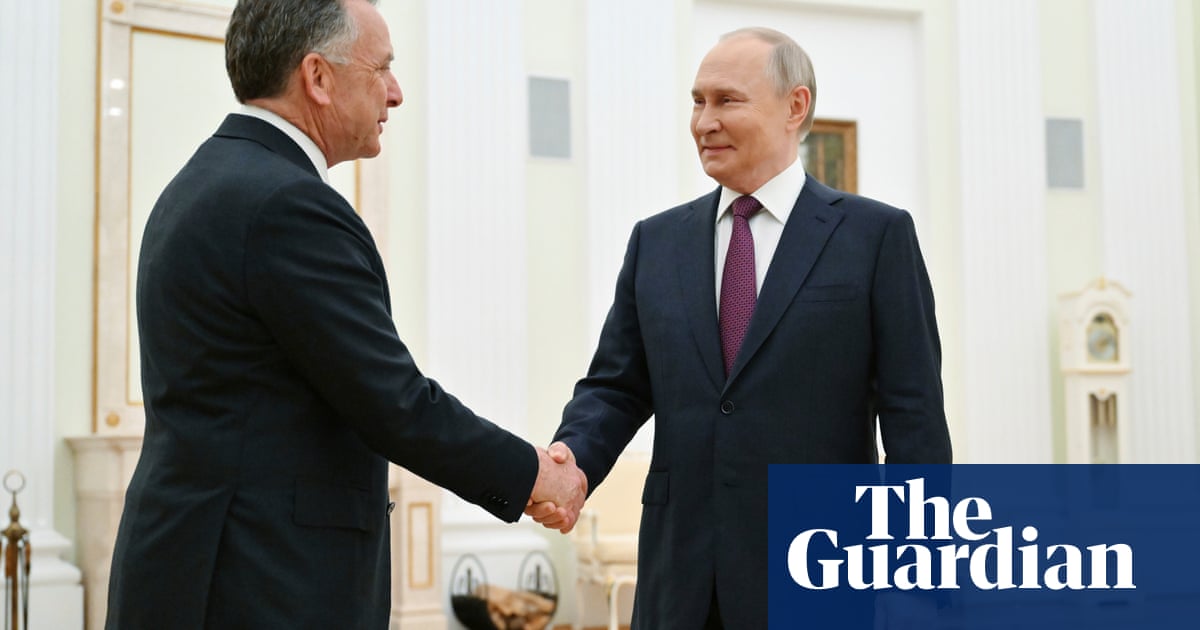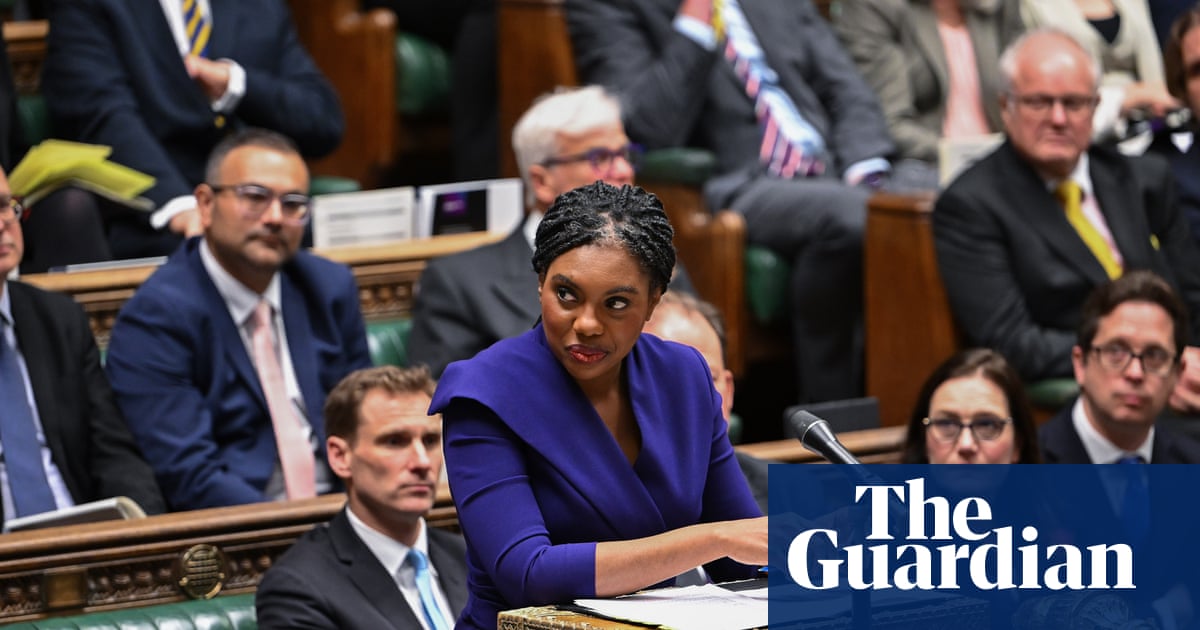This is not a happy time to be on the one-nation wing of the Conservative party. The final round of last year’s leadership election was between two candidates from the right of the party, and since then it has been Robert Jenrick, the more rightwing of the two, who has emerged as the party’s centre of gravity – a remarkable feat for a man who lost the race.
His recently reported comments about a coalition with Reform UK (or perhaps, as sources close to him insist, its voters) have put the question of the Tories’ future direction back in the spotlight. Is Nigel Farage the herald of a fundamental rightward shift? Is this, as one fellow journalist put it to me, “the final death of one-nation Toryism”?
The short answer is “probably not” – at least not unless the Tory party dies its own final death. The “one nation” label dates back to Benjamin Disraeli; it survived the reactionary hegemony of Lord Salisbury and the revolutionary one of Margaret Thatcher. So long as there is a Tory party, it will have a left wing and, historical labels being what they are, it will probably call itself one nation.
Last year’s contest would also seem, on the surface at least, to provide that wing with some bullish indicators. Broadly speaking (for personal loyalties and ambitions confound precise readings from such tallies), James Cleverly and Tom Tugendhat had the support of about half the parliamentary party. It took a real feat of self-sabotage for neither to reach the final. Yet there can be no doubt that one-nation Conservatism is in trouble – and the root of that trouble is that it is intellectually exhausted.
Consider last year’s leadership election again. Many Cleverly supporters ended up rowing in behind Kemi Badenoch to stop Jenrick. They knew they didn’t like the policy direction he was proposing. But the alternative was a candidate who made a virtue of having no policy direction at all and who, on issues such as immigration and the European court of human rights, is now inching towards his positions anyway.
Badenoch was an opportunity to hit the snooze button on an intellectual reckoning with the past 14 years, and postponing that reckoning has been the sum of the Tory left’s ambitions since the general election.
Hence nonsensical arguments such as the Conservatives lost not because of any failure of doctrine, but on “competence”, two things that cannot in politics be so cleanly distinguished. Where was the incompetence on immigration, for example: promising to cut it to the tens of thousands, or failing (indeed, not really trying) to fulfil that promise?

The unhappy truth that capital-S “Sensible” Tory MPs must confront is that any “lurch to the right” over the past few years was almost entirely rhetorical rather than substantive, and with the exception of Brexit – which, however important you think it is, is not the root cause of our housing and energy price crises – they got what they wanted most of the time.
Perhaps that feels counterintuitive, but it’s true. NHS spending increased by 25% in real terms between 2010 and 2023 without (post-Andrew Lansley) any serious effort at structural reform; more young people than ever were funnelled into higher education; immigration was allowed to rise to whatever level industry and sector lobby groups demanded; taxation levels soared.
Yes, the Rwanda scheme was certainly very right-coded. But not only did Rishi Sunak bend over backwards to try – and fail – to implement it without fundamentally challenging our existing legal and treaty obligations, but the whole thing was in part a way to talk about immigration without talking about legal immigration, which Boris Johnson had casually doubled.
This disconnect played a significant role in the Tories’ shattering defeat last year by alienating voters on all fronts; Badenoch is right to point out that the party “talked right, but governed left”, even if she cannot or will not offer any compelling explanation as to why.
Perhaps the most telling evidence of this intellectual aridity is the way the Tories responded to the rise of Ukip. Like Jenrick now, Nigel Farage was able for years to set the tempo of Conservative thinking – or at least Conservative language – on Europe and immigration; time and again, David Cameron either made promises he had no intention of keeping (net immigration to “tens of thousands”) or didn’t expect to have to keep (an in/out referendum).
Some one-nation MPs certainly criticised his “pandering” in this way. But they never furnished him or his successors with an actual alternative solution to the problem of a party that came second in 100 seats in 2015 and was well positioned to walk away with a critical slice of the Tory vote.
At root, the problem currently facing the one-nation Tories is, paradoxically, that they are the most small-c Conservative faction; often self-consciously non-ideological, and united around the principle that the status quo more or less works and requires only sensible adjustment to keep the ship of state on course.
That is a healthy, conservative cast of mind, of course. But it can too easily ossify into a reflexive defence of the status quo, an instinctive distaste for radicalism mutating into the comforting belief that radical measures are never the answer, compounded in this case by the understandable reluctance on the part of former ministers to admit, even to themselves, to complacently presiding over systems that were slowly falling to pieces.
Ultimately, the reason the right is making the policy running is that it is the only force on the field. What is the one-nation solution to mass immigration, save shoring up a Westminster consensus that allows public opinion to be safely ignored? To the looming financial apocalypses in higher education and local government? To the unsustainable trajectory of NHS and entitlement spending?
I have no idea, and I write about the Conservative party for a living.
It’s not that there aren’t ideas out there, intellectual threads that could be woven into a relevant one-nation philosophy and programme. But MPs have no right to grumble about their party gravitating towards Jenrick’s answers, or Farage’s, when for now they are the only people offering any.
-
Henry Hill is deputy editor of ConservativeHome

.png) 5 hours ago
6
5 hours ago
6













































